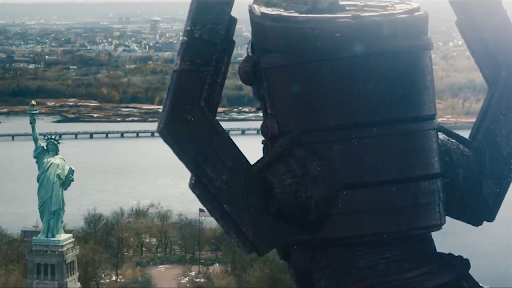Ubisoft I’ve Given You All And Now I’m Nothing
Stern words on the Assassin’s Creed franchise and AAA games as a whole
It was the winter of 2014. I was trapped in a stupor of excitement and childlike wonder just imagining the wonderful new gameplay. Visions of wild new attack moves, compelling storylines, and all new explorations of content in Assassin’s Creed Unity danced in my head. And then it happened.
Expectations ran high as soon as I picked up my controller and began traveling through Revolutionary France. But my heart began to sink with each minute that went by. Something was different. Something was wrong.
The controls were bizarre, the reaction time was slow, and Arno felt as light and agile as a wet pile of bricks. My hope was fleeting fast the further I got into the game, my little, cold fan heart was crumbling. As the lackluster story dragged on, I couldn’t see myself enjoying much more than the graphics, which they seemed to have spent more time on than literally any other component of the game.
Assassin’s Creed Unity was the poster child for setting your expectations too high.. And these expectations weren’t the fault of having far fetched ideas — plenty of other developing companies have proven that ambitious projects can work. What Ubisoft and some other AAA game developers can’t seem to grasp is that their fans deserve better than a game that’s rushed, unoriginal, and next-to-unplayable. And with inventive games like The Witcher 3 and Fallout 4 likely battling it out for game of the year, it’s almost impossible that Syndicate will come close to the title.
Turn back the clock to 2014 — the year of excuses, PR pandemonium, and nonsensical steps in the wrong direction. They claimed animating women was too much of a challenge. They halted critical reviews of Unity for twelve hours after its midnight release to safeguard a game rife with technical horrors. They capped framerate at 30fps only to fail to produce a fully-functioning game at that rate. Secondhand embarrassment was not an uncommon feeling that year, but all of that has transformed into a whole lot of distrust and fullthrottle rage.
IN 2014, Ubisoft set the stage for what could’ve been — and inadvertently highlighted what will ultimately be — by releasing two games for the saga at the same time — Assassin’s Creed Unity and Rogue. Rogue was a game focused on providing context and sense to a story that’s been hanging in ambiguity for three years straight. They happily answered fan demands of playing as a Templar and bringing closure to the Kenway series. We received much of the enriching story lines and in-depth understanding of the Creed that we really hadn’t seen since Ezio’s storyline.
The problem? Although Rogue succeeded in its story, it was robbed of the time it deserved to be a fully phenomenal game, putting walls around plot lines and characters that could’ve been expanded. The game’s immersion was a mile deep but an inch wide. The graphics were knocked back down to the level of a game that came out two years before — fitting for 2012 but not for 2014. It was pushed aside to an Old Gen. console to keep Unity exclusively in the spotlight.
But this isn’t uncommon for Ubisoft. Assassin’s Creed Liberation and the Assassin’s Creed Chronicles series, though focusing on exploring angles of the game’s world fans have been demanding for years, received zero media attention. They were pushed onto older consoles or forced to reside in the irrelevant nooks of relevant games. And when they’re finally made accessible to a larger audience, all interest in them is lost.
Ubisoft has been relying on the all too shady business model of AAA producers for far too long: constantly pushing out games that fail to meet expectations they built up for themselves and providing games that are either nearly unplayable or far off from any game that should be coming out in 2015. Visceral games did it with Battlefield 4, EA did it with The Sim’s 4, Ubisoft did it again with Watch Dogs. It’s easy to blame consumers for buying a game they aren’t sure will work on day one, but I’m really of the belief that there shouldn’t even be a question about a game working on day one.
Trying to win over consumers with forced memes isn’t what we want. Alienating huge numbers of fans to win the hearts of those who take issue with critiquing aspects of game development isn’t what we want. Making more and more excuses isn’t what we want. Keeping the story more and more ambiguous isn’t what we want. Having all Syndicate trailers and teasers mirror Unity shot for shot (seriously, go watch both of their cinematics and tell me those aren’t basically the same game) isn’t what we want. Having beautiful graphics for a game you can’t play isn’t what we want. Only having all the creative content as DLC or side-quests isn’t what we want.
All we ever wanted was to have fun playing video games.
And developers like Bungie, Naughty Dog, Bethesda, CD Projekt RED — developers who, in the last few years, have become the future leaders in gaming — know this. They not only make games that work, but work well. They’re flexible to the whims of their fans while maintaining their own autonomy and creativity, leaving no rock unturned. They love making fun games as much as we love playing them. If they’re capable of doing all of this, I don’t understand why dominating developing companies aren’t.
Soleil Smith was a journalist for the Eagle Quill.





